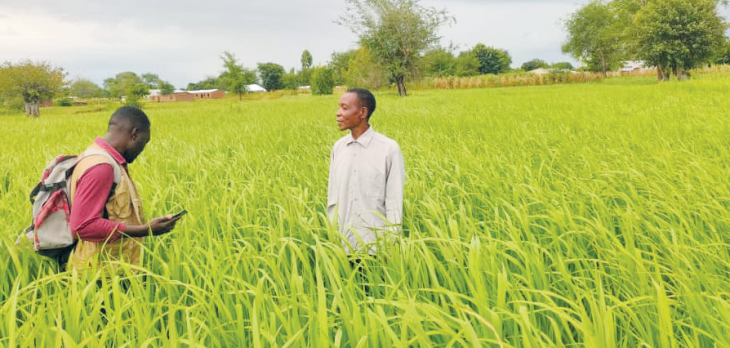
Navigating the Fallout: How Malawi Businesses Can Thrive Amidst Global Commodity Price Volatility
Key Business Points
- Global commodity prices are projected to fall by 7% in 2025 and 2026, which may squeeze profit margins for Malawi’s farmers despite rising production costs, making it essential for them to adopt cost-saving measures and explore new markets.
- The Fertiliser prices are expected to surge by 21% in 2025, posing a significant challenge to farmers, and government intervention may be necessary to cushion them from this loss, such as implementing a universal subsidy programme.
- Diversification of exports is crucial for Malawi, as the country’s dependence on commodities remains high at 91%, making it vulnerable to external shocks, and investing in innovation and research can help reduce production costs and improve productivity, as emphasized by the Chichewa business phrase "Kubwira kwa nzeru" (innovate with wisdom).
The World Bank Group’s latest Commodity Markets Outlook indicates that global commodity prices are expected to drop to their lowest level in six years in 2026, driven by weak global economic growth, a growing oil surplus, and persistent policy uncertainty. This development is likely to affect Malawi’s farming community, which is already facing rising production costs. The Farmers Union of Malawi (FUM) president, Maness Nkhata, has pleaded with the government to adopt a universal subsidy programme to cushion farmers from the potential loss. Additionally, the FUM is calling for significant investment in innovation, research, and development to lower production costs and improve productivity, a concept echoed in the Chichewa business phrase "Kulima kwa mtundu" (farming with strategy).
The decline in commodity prices comes at a time when Malawi’s dependence on commodities for exports remains elevated at 91%, according to United Nations Conference on Trade and Development data. The country’s merchandise exports have shrunk from $1.3 billion in 2014 to $958 million between 2021 and 2023. Agricultural products, particularly tobacco, account for a significant portion of these exports. Diversification of exports is crucial to reduce the country’s vulnerability to external shocks. The Ministry of Industrialisation, Business, Trade, and Tourism spokesperson, Patrick Botha, has stated that Malawi intends to leverage regional integration through its participation in regional blocs such as the African Continental Free Trade Area to explore new markets for value-added products, a strategy aligned with the Chichewa business concept "Kugawa kwa mpango" (diversifying with planning).
Agriculture economist Henry Kamkwamba has observed that falling global commodity prices coupled with rising fertiliser prices could have a double effect on people’s welfare. In the short term, farmers will be hurt by increasing input prices, which will erode their purchasing power. However, in the medium term, they might push the burden to consumers, leading to higher food prices and instability in urban areas. Kamkwamba has urged the government to sponsor large farming enterprises to produce strategic food commodities to make food cheaper, although this could distort private farmers’ profitability. The World Bank Group chief economist, Indermit Gill, has emphasized the need for governments to use the current respite to get their fiscal house in order, make economies business-ready, and accelerate trade and investment. As the Chichewa business phrase "Kukonda kwa nzeru" (investing with wisdom) suggests, Malawi’s business community must be proactive in responding to these challenges and opportunities.
What are your thoughts on this business development? Share your insights and remember to follow us on Facebook and Twitter for the latest Malawi business news and opportunities. Visit us daily for comprehensive coverage of Malawi’s business landscape.
- Malawi Entrepreneurs: Scale Your SME, Strengthen the Economy - February 10, 2026
- Chichiri Mall’s Retail Shift: Icon Secures Opportunity for Malawi’s Business Growth Post Shoprite - February 10, 2026
- Icon Properties: Shoprite Departure Spurs Opportunity in Malawi’s Evolving Market - February 10, 2026
